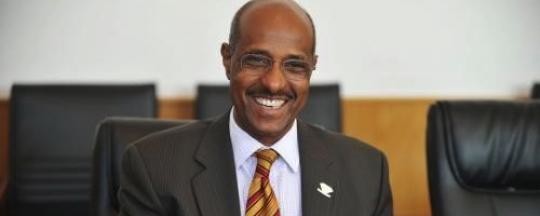South Sudan’s government delegation and rebels meeting currently in Addis Ababa will plan together the creation of a shared unified command and unification of their forces, besides also working to establish the ceasefire coordination mechanisms, according to a statement by Ambassador Seyoum Mesfin.
The statement given yesterday by Mesfin, the chief mediator appointed by East African regional bloc IGAD, indicates that the meeting ongoing from 21 to 26 October in Addis Ababa will focus on Chapter II of the agreement – transitional security arrangements – rather than the political issues covered in Chapter I.
“Our meeting today is very critical as it considers planning the implementation of the Shared Unified Command and Unification of Forces, and working towards the establishment of all other institutions as provided for in the Permanent Ceasefire and Transitional Security Arrangements,” Mesfin highlighted.
“The outcome of this meeting, therefore, will be a milestone towards the successful implementation of the Agreement. Without these institutions, the realization of the provisions in the Permanent Ceasefire and Transitional Security Arrangement, and establishment of the Transitional Government of National Unity will be unthinkable,” he said.
Mesfin underscored that the workshop in Addis Ababa is “not to renegotiate the Agreement, but rather is an exercise to find ways and means of implementing it expeditiously and in good faith. It is the Mediation’s view that the Principal Signatories will have ample time for this session, which is a planning session for the implementation of Chapter-II of the Agreement.”
He said that the security arrangements are the key “entry point” to the transitional period during which South Sudan will be governed by a “unity government” in which all signatories are represented. The envoy urged the parties not to delay to implement the security provisions of the peace agreement as this would prolong the suffering of the South Sudanese people.
Earlier in his remarks, Mesfin also noted that the ceasfire has been repeatedly violated even after the signing of the peace agreement. “The continuation of violations of the Cessation of Hostilities Agreement is casting doubts on the Parties’ seriousness and commitment to end the crisis through peaceful means. The credibility of the Parties is on the line in front of the eyes of your people and the international community,” he said.
Formally, the meeting is now being called, “Meeting of the Signatory Parties to The Agreement on Planning Implementation of The Shared Unified Command and the Implementation of the Chapter II provisions of the Agreement.”
Related coverage from our series ‘Explaining the South Sudan peace agreement’:
Who will report ceasefire violations?
Who must coordinate demobilization?
Where will the forces of the warring parties go?
What are considered ceasefire violations?
Does the ceasefire apply to allied forces?




